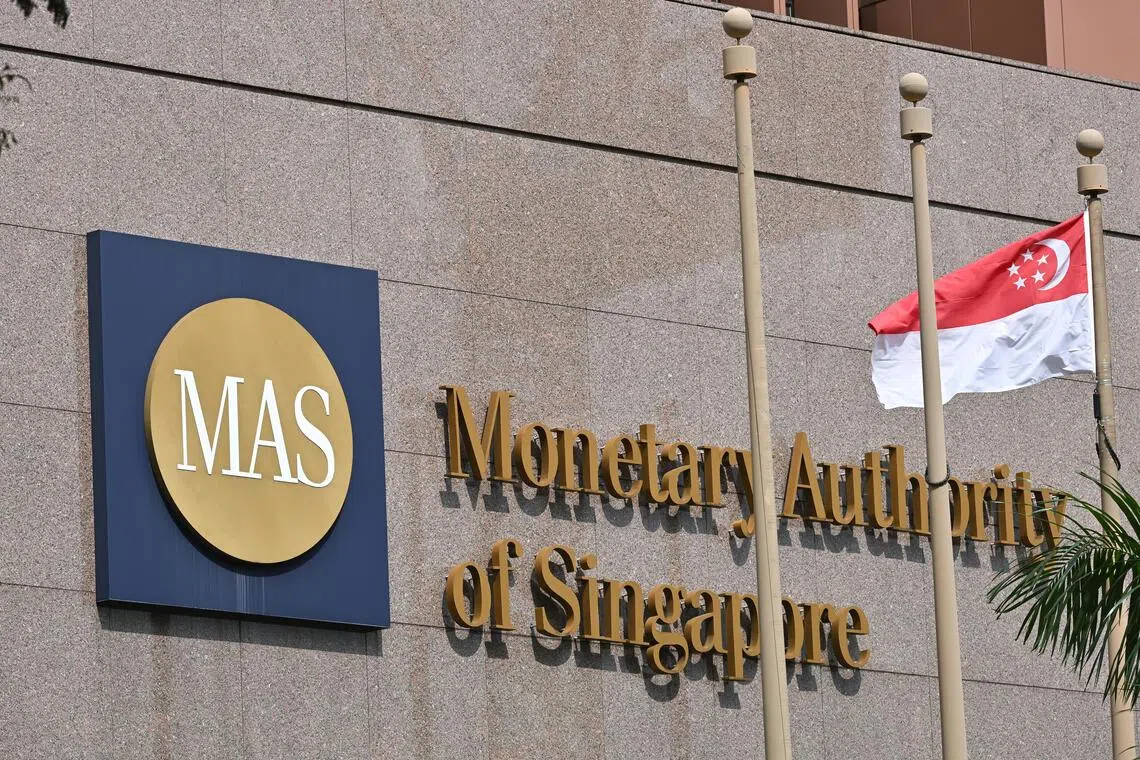MAS may make it easier for investors to seek legal recourse over market misconduct
Sign up now: Get ST's newsletters delivered to your inbox

The proposals are part of the package of initiatives by the Equities Market Review Group to increase investor interest, improve the Singapore market’s attractiveness to quality listings and adopt a regulatory stance which supports companies while protecting investors.
ST PHOTO: LIM YAOHUI
Follow topic:
SINGAPORE – Retail investors in Singapore are set to get more support to pursue legal action and claim compensation for losses caused by market misconduct.
The Monetary Authority of Singapore (MAS) said on Oct 24 that it is seeking feedback on proposals to enhance the Securities and Futures Act, as part of its next set of measures to boost the local stock market.
The three proposals, MAS said, will make it easier for investors to seek redress, while at the same time guard against frivolous lawsuits that waste judicial resources and impose unnecessary costs on market participants.
“An effective investor recourse regime gives investors greater confidence to participate in the securities market,” the regulator said.
Market misconduct refers to practices that harm investors or hurt the markets, and includes insider trading, where one trades on inside information; false trading, where one creates a false impression of a stock; and market manipulation, where one deliberately engages in activities to artificially drive a stock price up or down.
MAS noted that in instances where there is alleged market misconduct, investors may find it difficult to organise themselves and find someone willing to lead the legal action.
Therefore, it is proposing that an independent party, or designated representative, be allowed to represent and coordinate legal action on behalf of these investors.
The designated representative must meet certain requirements, such as having no conflict of interests or financial gain from the lawsuit.
In addition, market misconduct cases may require specialised legal expertise, expert witnesses and detailed financial analysis, all of which are expensive, MAS noted.
It is thus proposing that a grant be set up to co-fund investor actions so they will not find it so prohibitive to take legal action. The grant will also defray the costs of the designated representative.
MAS will put in place adequate controls such as grant parameters and a governance framework to ensure the scheme is used only for legitimate claims, and requiring co-payment for legal action.
Lastly, MAS is proposing to reduce the legal barriers for taking civil action, by simplifying and streamlining the process for investors to claim compensation based on existing criminal convictions or penalties.
It is also proposing that investors be allowed to use a wider range of resolved enforcement cases to claim compensation. Such cases include where the wrongdoer reaches an agreement to end a civil case with MAS, often by paying a penalty or taking corrective actions.
Other legislative amendments seek to make it simpler for investors to prove that they relied on misstatements or omissions when making buy or sell decisions; and the removal of compensation caps, so the courts would determine compensation amounts on a case-by-case basis.
MAS said the proposed measures are intended to complement public enforcement actions.
They are part of the package of initiatives by the Equities Market Review Group to increase investor interest, improve the Singapore market’s attractiveness to quality listings, and adopt a regulatory stance that supports companies while protecting investors.
Market watchers welcomed the proposals. Mr Joey Choy, a remisier and trader at Phillip Securities, said retail investors will have a bit more peace of mind when they invest in the smaller or lesser-known stocks listed on the Singapore Exchange.
“Anything that gives investors greater confidence that there is accountability and transparency when things go wrong will help strengthen trust in the Singapore markets,” he added.
Mr Louis Koay, a senior financial services director at Phillip Securities, said that investors often find it difficult to understand corporate actions or legal terms in investments.
He added that a professional body like the Securities Investors Association (Singapore) could be the bridge between investors and companies, explaining these matters in simple, layman’s terms.
MAS is inviting views and suggestions from interested parties on the proposals set out in a consultation paper available on its website
Comments may be submitted via the FormSG link


